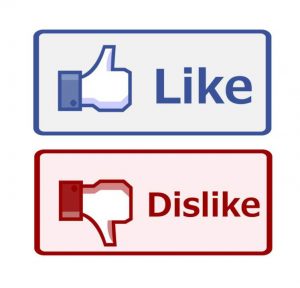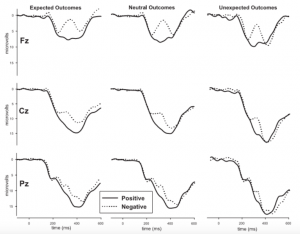
Dealing with Attendee Perception: Downplay the Negative – Accentuate the Positive
When promoting your events, you’re going to come across responses of all kinds. We all know that bad feedback can make or break an outreach campaign. Here, you will learn how to accentuate the positive and eliminate the negative perception of your efforts on social media. Read on for planning advice and tips and tricks to win the feedback game.
Think Ahead & Start Facilitating Positive Feedback During the Planning Phase
As an event promoter, you understand the importance of planning your campaigns way in advance. One of the best ways to ensure positive feedback is to start at the beginning and try to anticipate every possible scenario. What are the expectations of your event’s attendees? No plan is flawless, and there will be issues that come up for some of the people engaged by your social media efforts.
Try to figure out what those issues might be, and address them from the start. For example, you may have a piece of technology that hasn’t been tested. If so, should you perhaps give viewers and fans clear instructions on what to do if the app or software has issues? Of course, not testing your promotions platforms, signup forms, and applications is never a good idea, but sometimes servers become overloaded and other technical problems arise.

According to the Department of Psychology at the University of Delaware, these charts show that when people expect negative results, they are less emotionally affected by them. By taking the time to anticipate potential hurdles in your social media promos, you stay a step ahead and take the first step to facilitate the optimal environment for positive feedback.
This is the Type of Communication that Will Engage, Recruit, and Leave Attendees With Great Things to Say
Monologue, in relation to event promotion on social media, is a “dry” announcement about your event. That is one of the social media dangers you should fight tooth and nail to avoid. Saying something like, “ABC’s trade show will be taking place this weekend,” can’t really warrant a notable response from viewers. Sure, you may get some likes and even a couple shares, if you already have a solid fan base, but it’s not going to optimize engagement and five star reviews.
Instead, create a conversation, a dialogue, with your fans. By asking questions and using brief statements that leave the reader with a question or an ache to share their expertise, you ensure that people are engaged and develop a positive perception of your event.
What Should You Do With Negative Feedback to Lighten Its Weight?
One of the worst feelings is pouring your heart and soul into an event, only to receive that dreaded criticizing comment or tweet. But, hey, it happens, and here’s what you can do about it: respond in the right way at the right time. Handle your response to the negativity in this order:
- Let your audience do your bidding – If you wait just a little while, monitoring the criticism, your fans and followers may just handle the response for you, or give you an idea what type of reply is best received.
- Use reason – Before you step in, try to gauge the importance of responding to the comment.
- Be patient – Don’t argue, and don’t get defensive. Have patience with the person you’re in communication with. The rest of the world is watching, and this experience could be very valuable.
- Provide value – When engaging in dialogue with anyone on social media, try to be helpful and resolve the situation at hand
- Make adjustments – When it is helpful, and possible, make any changes that will remedy the issue at hand. Communicate about what it is you are doing.
Summary
Planning ahead and using engaging social media content will surely enhance the likelihood of positive feedback. When it’s arch nemesis (a bad attendee experience) does arise, you should have a good idea how to handle it. Take what you’ve learned here and apply it the next time you promote an event on social media.
Resources:
- “Brain Potentials associated with expected and unexpected bad outcomes.” Department of Psychology, University of Delaware, Newark, Delaware, USA. Chart and information sourced from http://cpl.psy.msu.edu/wp-content/uploads/2010/05/Hajcak-Holroyd-Moser-Simons-2005.pdf on March 1, 2016.
- “Social Media & Events Report 2011: How is he event industry using social networks?” Amiando. Sourced from https://www.amiando.com/fileadmin/Data/Info-Center/Reports/Social_Media_Report/Social_Media_and_Events_Report_2011.pdf on March 1, 2016.
- “10 Feedback Case Studies or Ideas.” The Higher Education Academy. Sourced from https://www.heacademy.ac.uk/sites/default/files/resources/10_feedback_case_studies_or_ideas2.pdf on March 1, 2016.
Janet Amistoso
Latest posts by Janet Amistoso (see all)
- Three Networking Gadgets That Are Transforming the Event Industry - October 4, 2016
- The ABC’s of Increasing Your Event’s ROI - April 28, 2016
- Women Rising Up! Smart Women 2016 Industry Leaders - April 6, 2016

